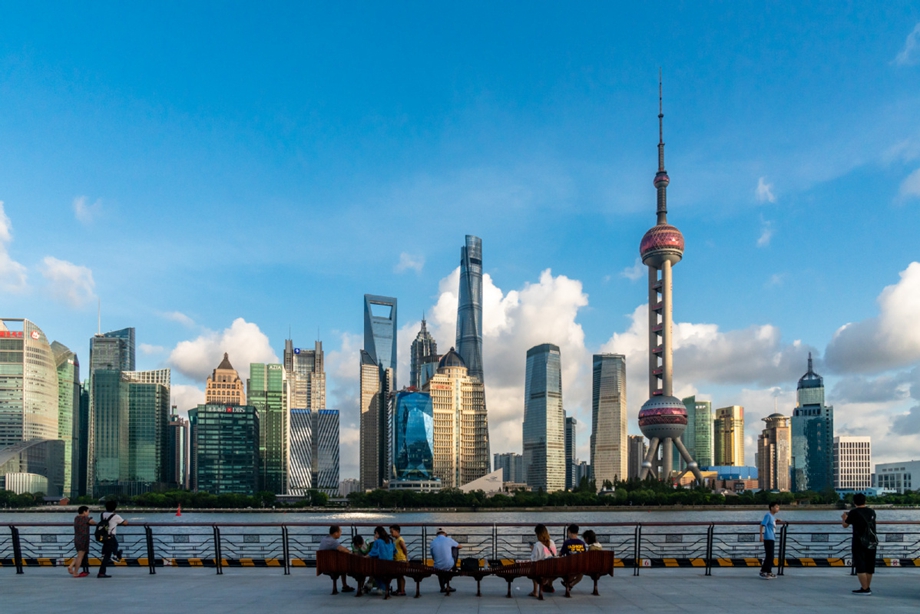Positive signals for tapping growth potential

Lujiazui, the financial center in Shanghai, forms a perfect backdrop to the Bund area. [Wang Gang/For China Daily]
Despite the ongoing COVID-19 pandemic and external pressure brought by geopolitical uncertainties, China's economy maintained its growth momentum in the first two months of the year, mostly thanks to effective government policy support.
Domestic consumption, fixed-assets investment and foreign trade remained the main drivers of the strong economic performance in the January-February period, reflecting the "great resilience and potential" of China's economy, said Fu Linghui, spokesman for the National Bureau of Statistics, at a news conference in Beijing on Tuesday.
The most notable indicator was retail sales of consumer goods. The index, the main gauge of consumption, expanded by 6.7 percent in the first two months, beating many analysts' forecasts.
Though retail sales surged 12.5 percent last year, they declined markedly in the later part of the year, with the growth rate plunging to only 1.7 percent in December from 3.9 percent in November, sparking worries about weakening consumption as a result of the protracted resurgence of the novel coronavirus. The latest data indicate the downward trajectory has been reversed.
On the investment front, fixed-assets investment increased 12.2 percent, up 7.3 percentage points compared with the same period in 2021. In particular, investment in high-tech manufacturing and services rose 42.7 percent, indicating continuation of the new growth pattern that focuses more on industrial upgrading and quality development.
Meanwhile, foreign trade expanded by 13.3 percent year-on-year, thanks to strong external demand and the irreplaceable role that the country plays in the global supply chains. This is reflected in the fact that despite a lingering trade war with the United States, exports to the country still rose by 13.8 percent over a year earlier.
But these achievements have not come easily given the mounting challenges facing the economy, which have prompted the government to roll out a slew of supportive macro policies to stabilize growth.
Yet the country still faces the triple headwinds of shrinking demand, disrupted supply and weakening expectations that will make attaining this year's growth target of around 5.5 percent a challenging task.
Recognizing this, a conference on stabilizing financial development the State Council held on Wednesday sent the clear-cut signal that the country will make unswerving efforts to improve its business environment and strengthen investors' confidence in the Chinese market.
For instance, the authorities will help real estate companies resolve their risks more effectively, encourage Chinese enterprises to list overseas, strengthen regulation on platform enterprises in a more predictable way, and stabilize the expectations for key financial policies.